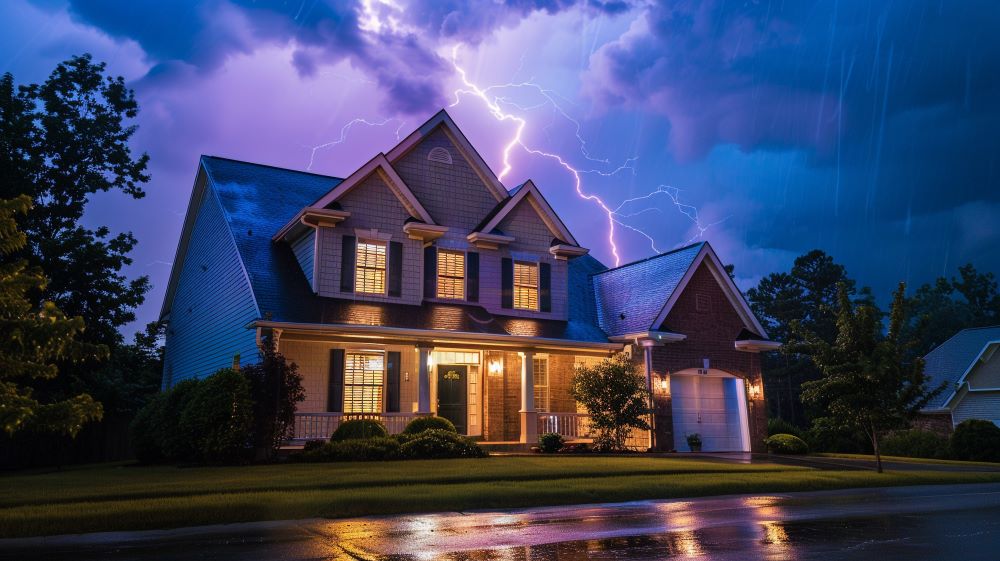
Electrical storms, often known as thunderstorms, are natural phenomena that pose severe threats to both housing and human safety. Storms are magnificent to behold from afar however, they can have disastrous repercussions if they hit near home. very year in the United States, hundreds of homes are damaged due to lightning strikes, power surges, and electrical fires triggered by storms. Another key point, homeowners must be aware of potential hazards and ensure their properties comply with American building code regulations.
Electrical storms cause lightning, simply a tremendous release of electrical energy. Particularly, energy can impact a home directly, pass via its wiring or plumbing systems, or cause deadly power surges. Electrical storms pose several concerns, including:
During a storm, an electrical surge can flow through the home’s wiring, frying fragile devices such as computers, refrigerators, HVAC systems, and more. Surge protectors are vital for avoiding costly damage. The National Electrical Code (NEC) mandates that homes employ surge protection devices (SPDs) to protect their electrical systems from surges. Upgrading the home’s electrical panel to add a whole-house surge protector is a popular recommendation.
Lightning strikes and power surges can overheat electrical systems and cause fires. Faulty wiring in older homes is an even more significant concern during a storm. The NEC requires that residences have wiring and circuit breakers capable of handling unexpected electrical surges.
Homeowners can take precautions to limit electrical storm threats to their property, including keeping households secure, compliant, and prepared. Install the following lighting protection systems to secure your home and foundation.
While electrical storms are an unavoidable part of nature, homeowners do not have to feel helpless. Primarily, ensure you reduce property and personal safety hazards by adhering to building rules and implementing safety measures such as surge protectors, lightning rods, and adequate grounding. Then invest in storm protection not only secures the home. Also provide peace of mind by ensuring that the threats of electrical storms are appropriately addressed. If you are concerned about your home’s stability due to an electrical hit or faulty construction, contact Atlantic Foundation and Repair for a free homeowner’s consultation.*
1. What damage can a lightning strike do to my home’s foundation? Usually, lightning does not reach your home’s foundation, but exceptions exist. Construction should install adequate ground toward the beginning of the project.
2. How do I know I have a proper grounding in my home’s foundation? Start obtaining inspections during the beginning of the construction of your home to ensure adequate foundation installation.
3. Who can ensure the proper installation of my foundation? Foundation Repair teams like Atlantic Foundation provide the inspection needed for your foundation’s construction. Also, you can call home inspectors to ensure construction teams properly install your foundation.
-(2023). NFPA 780 Standard for the Installation of Lightning Protection Systems. NFPA. https://www.nfpa.org/codes-and-standards/nfpa-780-standard-development/780
-https://electrification.us.abb.com/products/surge-protective-devices
-NFPA (2023). National Fire Protection Agency 70 National Electric Code. NFPA. https://www.nfpa.org/codes-and-standards/nfpa-780-standard-development/780
*Disclaimer: This blog informs and suggests safety measures for your home. However, we urge you to take cover and follow all NFPA and FEMA protocols for official safety advice because, your safety is more important than property, so plan accordingly.